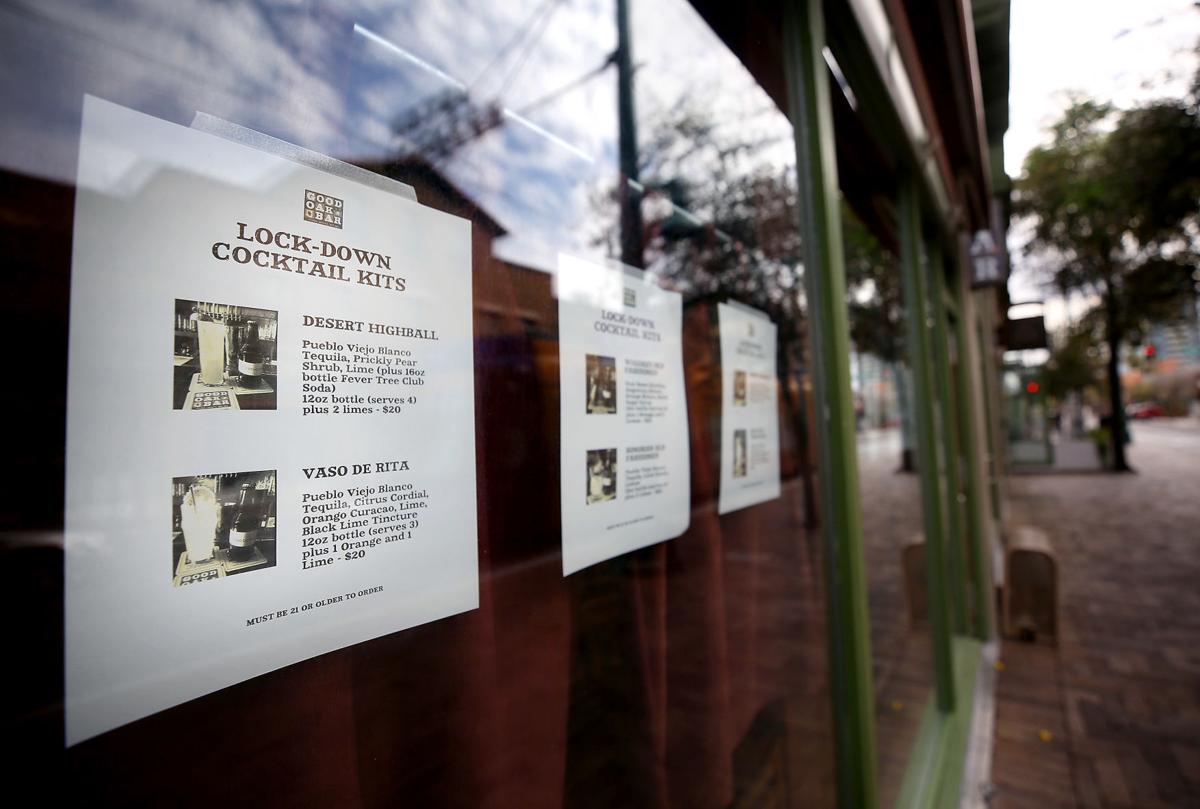PHOENIX — Gov. Doug Ducey is asking the Arizona Supreme Court to throw out a challenge to his authority filed by dozens of bar owners, in a case that will determine the scope of gubernatorial power.
There is nothing constitutionally wrong with state lawmakers giving broad authority to governors to act in cases where they declare an emergency, attorney Brett Johnson, representing Ducey, told the justices late Tuesday. Ducey declared an emergency in March because of the COVID-19 pandemic.
But Johnson said that emergency power is not absolute, and that’s what makes the granting of such authority legal.
“The legislature, in preparation for this moment in history, provided statutory guidance on the scope and limitations of the executive’s authority during an emergency,” the governor’s attorney wrote.
Johnson said Ducey was justified in his June 29 decision to close down bars. He said bars present “a uniquely high-risk environment” for transmission of the virus.
“They are social settings where groups of young people typically convent, and at times mix with other groups,” Johnson said.
“They are often cramped, indoor spaces with poor ventilation and unlike restaurants that can space tables apart, bars often have fixed bar stool seating,” he continued. “Loud music or ambient noise can exacerbate the risk because it forces ... persons to talk louder or closer to one another.”
And then there’s the fact that drinking is not compatible with wearing a mask, he wrote.
The lawsuit filed by bar owners is substantially different than others filed recently by the owners and operators of gyms and fitness centers. The gym owners contended — but have so far failed to get judges to rule — that they were able to operate in a safe fashion and should be allowed to reopen.
By contrast, the outcome of this case will determine the scope of gubernatorial power.
At the heart of the issue is the law that allows the governor to declare an emergency. That statute then gives him “the right to exercise … all police power vested in the state by the constitution and laws of this state” to deal with that emergency.
An attorney representing bar owners from around the state, Ilan Wurman, claims the flaw is that the Arizona Constitution rests all of those powers in the hands of the Legislature.
He said none of his clients are arguing that government cannot close down their businesses in “appropriate circumstances.”
“The question is who within our constitutional system of government has that power,” Wurman said.
“That person is not the governor,” he said. “The state legislators have that power,” which they cannot constitutionally delegate to the governor, according to Wurman.
Johnson said that misses several key points.
He pointed out that the law giving the governor emergency powers also allows lawmakers to vote to end the emergency — and the powers that go along with it — “should the time come when a governor overstepped.”
The judicial branch also exercises oversight “in ensuring that the state’s emergency response remains within constitutional and statutory bounds,” he pointed out to the court.
“A litany of legal challenges have been brought to enjoin Gov. Ducey’s emergency orders,” Johnson said, including not just the challenges by owners of fitness centers but also a direct challenge by a Flagstaff resident to the governor’s now-expired stay-at-home order. “None have succeeded.”
Wurman acknowledged there are circumstances where the Legislature can empower the governor to act in cases of emergency. But he told the justices these have to be specific and constrained and not unlimited.
For example, Wurman said, there are laws that allow governors to deal with public-health emergencies. These even allow a governor or the health department to quarantine people without court order or to require vaccinations, and permit the use of the National Guard to enforce those orders.
But they are limited.
“Nothing in (health law) authorizes the governor to close down petitioners’ businesses,” Wurman said.
Johnson disagreed.
“A temporary pause on people congregating in bars is rationally related to mitigating the public-health emergency of COVID-19,” he wrote.
Johnson has a backup argument of sorts.
He told the justices that if they’re inclined to allow Wurman and his clients to proceed, the case should be heard not immediately by them but instead sent to a trial judge. That, Johnson said, would allow all of the issues to be developed.
“The issues presented in this case affect people and business at all levels and involve substantial adverse impacts to the public health, including the deaths of thousands of Arizonans,” he said. “Rushing this case to a decision without the development of an appropriate factual record could have severe and long-lasting disastrous consequences.”
What it also would do is slow up the process to the point that, by the time the case made its way back to the Supreme Court, the emergency might be over.
There is no indication when the court will consider the issue.





